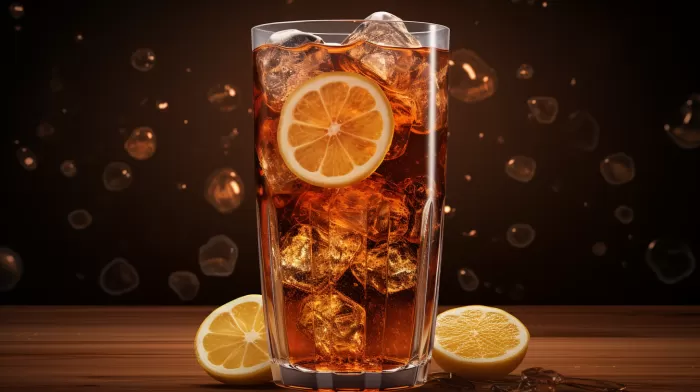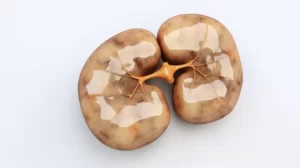You might think that sipping iced tea is the perfect way to stay refreshed during the hot summer months. If you belong to the whopping 10 percent of the US population prone to suffer from kidney stones, you should think twice before reaching for that frosty glass. A Loyola University Medical Center urologist warns that iced tea can, in fact, increase the risk of painful kidney stones. It might be time to explore some other refreshing alternatives that won’t compromise your health.
Why Iced Tea?
It’s all about oxalate. Iced tea contains high concentrations of this chemical compound, one of the key contributors to the formation of kidney stones.
Dr. John Milner, an assistant professor at the Department of Urology at Loyola University Chicago Stritch School of Medicine, says that “for people who have a tendency to form the most common type of kidney stones, iced tea is one of the worst things to drink.”
Not drinking enough fluids is the most common cause of kidney stones. Warm summer temperatures further increase the risk as the chances of dehydration are higher. So, when people are advised to increase their fluid intake during the summer, many turn to iced tea as a low-calorie and more flavorful substitute for water. Sadly, this seemingly harmless beverage could be doing more harm than good for those susceptible to kidney stones.
What Are Kidney Stones?
Kidney stones are crystalline deposits that form in the kidneys or other parts of the urinary tract. They vary in size, shape, and chemical compositions. The four main types of kidney stones are calcium stones, struvite stones, uric acid stones, and cysteine stones.
Of these, calcium stones are the most common and are typically caused by excessive oxalate intake. According to the American Urological Association, calcium stones account for roughly 75-85% of all kidney stones.
Kidney stones can be excruciatingly painful, and depending on their size, they may even require surgical intervention. Symptoms often include intense back or abdominal pain, blood in urine, cloudy or foul-smelling urine, and frequent urges to urinate.
Reducing the Risk
While your love for iced tea might run deep, your health should be the priority. Here are some tips to minimize the risk of kidney stones:
Hydration
Inadequate fluid intake is the primary cause of kidney stones, so it’s crucial to drink plenty of water throughout the day to keep your urinary system functioning smoothly. According to the Institute of Medicine, adult men should aim for about 3.7 liters (13 cups) of fluids per day, and adult women should aim for 2.7 liters (9 cups) of fluids per day.
Dietary Modifications
Reconsider your diet to reduce oxalate intake. High-oxalate foods to limit or avoid include spinach, rhubarb, beets, Swiss chard, and nuts. Studies also suggest that high doses of vitamin C can contribute to kidney stones. Avoid taking excessive vitamin C supplements and be mindful of the vitamin C content in over-the-counter products.
Alternative Beverages
Apart from water, there are many other refreshing beverages to choose from that won’t contribute to kidney stones. Some great options are lemonade or limeade made with real citrus juice, coconut water, and fruit-infused water.
Listen to Your Doctor
If you have had kidney stones in the past or are at high risk for developing them, be sure to follow your doctor’s advice and guidelines regarding diet and fluid intake. They may recommend some specific nutrition strategies to keep your kidneys in optimal shape.
Sip Smart
So, the next time you feel the sun blazing overhead and you’re tempted to reach for an iced tea to quench your thirst, remember the potential risks. Opt for a healthier, more kidney-friendly drink, and sparing yourself from the agony of kidney stones down the line. Stay hydrated, and choose wisely for the sake of your health.



